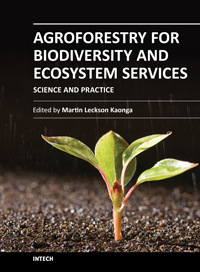Key messages
The West Africa Forest–Farm Interface (WAFFI) Project:- builds the capacity of rural women and men to proactively participate in policy dialogue and knowledge-sharing processes (998 women and men participated in the Auto Appraisals and Participatory Action Research).
- improves understanding of farmer management of multi-use landscapes that combineagriculture, forestry, livestock and natural resource management
- facilitates social learning to draw on local knowledge, to ensure research relevance and to validate scientific findings
- applies a gender-responsive approach to all activities in Burkina Faso and Ghana,ensuring that women make up more than 40% of participants and beneficiaries.
Download:
Année de publication
2018
Auteurs
Langue
English
Mots clés
livelihoods, small scale farming, food security
Géographique
Burkina Faso, Ghana



















